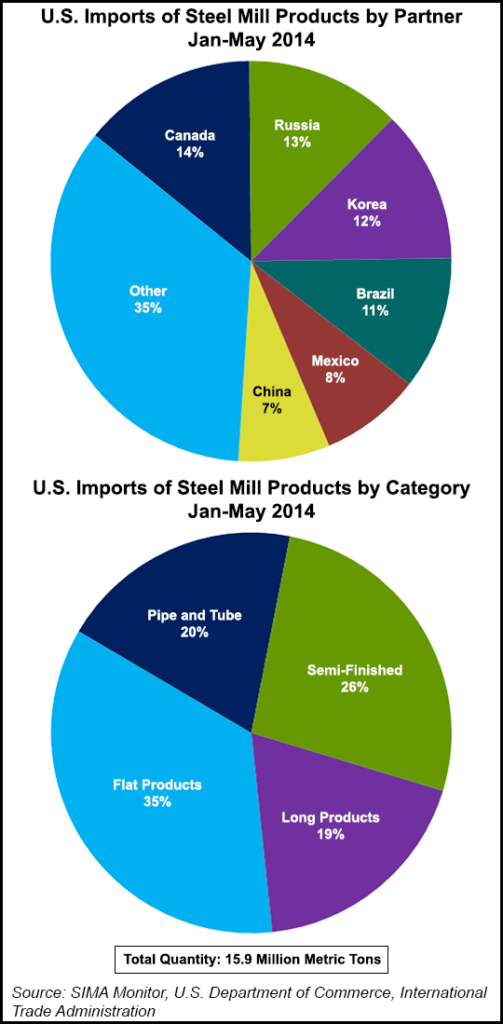Infrastructure | NGI All News Access | NGI The Weekly Gas Market Report
Steel Pipe Dumping in U.S. Draws Commerce Dept. Rebuke
Responding to petitions from several U.S.-based steelmakers, the Commerce Department on Friday imposed a stiff tariff on tubular steel (pipe) imported from South Korea and eight other nations. Steel companies and the U.S. steelworkers union lauded the Obama administration’s action.

The action allows the issue to be taken up on Tuesday by the U.S. International Trade Commission where both the steel companies and the international union will argue that the domestic dumping has caused economic harm and/or threatens to do so.
Commerce levied new duties of up to 118% on imported steel tubular goods from the nine nations involved in the alleged dumping.
Booming domestic shale oil production areas seeking more pipeline takeaway capacity and the U.S. producers will be watching closely to see if the result of the Commerce Department’s action is a change in the exports of oil country tubular goods (OCTG) from the nine nations hit with the additional taxes.
Each of the countries — India, Philippines, Saudi Arabia, Taiwan, Thailand, Turkey, Ukraine, and Vietnam, along with South Korea — have been sending cheap steel pipes to the United States to try to capture a major part of the U.S. shale drilling industry. This has come at a time when relatively low-priced, abundant U.S. natural gas supplies from the shale boom have helped revive the U.S. steel industry (see Daily GPI, Feb. 6, 2012).
U.S. companies, including revived steel firms in places like Ohio and Pennsylvania, petitioned the Commerce Department for action, alleging that the pipes being sold from abroad were being sold at prices below what it costs to make them — a common global marketing practice known as “dumping.” It is an attempt by foreign suppliers to corner a given market.
U.S. Steel Corp. CEO Mario Longhi said the Commerce investigation and final decision “shows that dumping of OCTG transpired through unfair methods and market distorting pricing” that he alleges was causing material harm to the American market. Longhi also cited a “strong partnership” with the United Steelworkers (USW) International in pushing back against the dumping.
USW President Leo Gerard said the federal government “listened to thousands of hard-working Americans and took a stand for fairness.” Gerard said the steelworkers again are “leading the fight [globally] for fair trade.” The union represents about 850,000 workers in North America employed in many related industries, not just steel.
“This practice has already caused serious harm to our domestic steel industry,” Gerard said. “Plants are being idled, workers are losing jobs and communities are suffering. We believe the information that American workers and their employers will present [Tuesday] to the International Trade Commission will provide further evidence that our trading partners are not playing by the rules.”
© 2024 Natural Gas Intelligence. All rights reserved.
ISSN © 1532-1231 | ISSN © 2577-9877 | ISSN © 1532-1266 |
